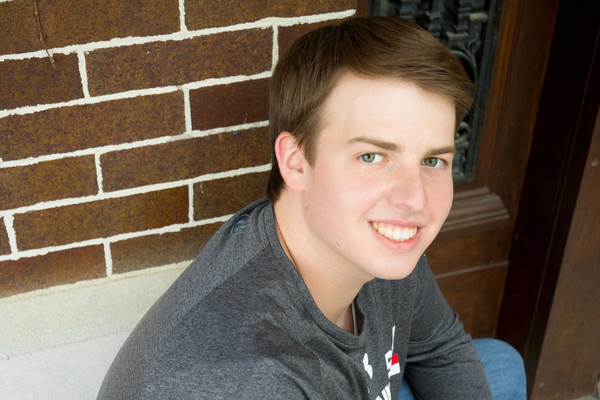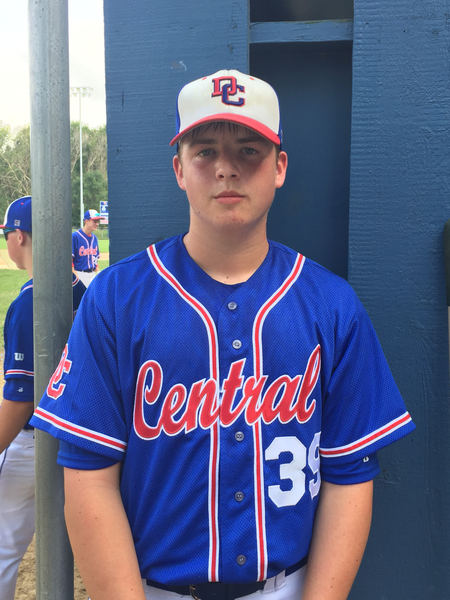
My name is Conor and I am 18 years old from Davenport, Iowa. I first developed the signs of Stargardt Disease in the 4th grade at the age of 10. At that time, it just seemed like a slight vision issue that wouldn’t affect my life too much. I wasn’t sure what to expect.
Stargardt Disease affects my central vision which makes me have to rely on my peripheral vision. I quickly adapted to this because I wanted to keep enjoying the same things as I had been doing. I was very active in basketball and baseball at the time and I liked to participate on the team, have fun with friends, be reckless, and enjoy life!
As the disease progressed, I stopped playing basketball competitively in junior high, but continued to play baseball. It was difficult to see at times depending on the lighting in the sky or the background of the trees and buildings, but my will to play came through. I was one of the starting pitchers and played some third base. I had great coaches who knew of my vision issues, and they worked with me so I could continue to play the sport I love and be safe. At times it was hard with teammates and fans grumbling if I made an error, but they need to realize that even kids with great vision make errors. I tried to be a leader and show the younger kids that teamwork and understanding are the qualities that mean the most. My most cherished moment of baseball was on June 8, 2016 when I hit a walk-off homerun to win the game for my team. My mother got it on video and every time I watch it, I feel the excitement of the night.
My degeneration leveled off around the age of 14 and I was learning to not let my disease be an excuse and still live a normal life as best I could. Socially, through junior high and high school, it was difficult. I wasn’t able to see far away so it was hard to see if my friends were at a certain lunch table or sitting in the bleachers. I learned to listen and just start going forward to where I wanted to be. I had some great friends that would call to me so I could hang out with them. Being confident and holding my head up allowed me to engage others as best I could.

I’m lucky that academics were fairly easy for me, but again, there were many struggles and adaptations I had to deal with. I had wonderful teachers that helped me in any way possible. They would provide me with written notes from the board and made sure I received assignments electronically. If something was written on the board, I would look at it before I sat down. Sometimes I would get an answer wrong because I went too fast on a test and missed a small word or number that made a big difference in the answer. My electronic magnifier and my iPhone were crucial for me to read and finish assignments accurately. I was able to perform at my top capability in high school and I graduated in June 2019 with a 4.0 GPA.
I was also able to play one year of baseball at a high school level before I quit due to safety concerns for myself. I decided to start bowling and have thoroughly enjoyed it. I bowled all through high school and was on the varsity team. Even though I can’t see the arrows, I can get a good feel of the lane. I plan to continue bowling in the future and maybe start a club in college. Also in high school, I participated in golf, weightlifting, and National Honor Society. NHS made me realize that helping the community is very rewarding. My educational journey is still not finished, because I am going to Bradley University this fall to pursue my doctorate in Physical Therapy.
With the help of my parents, my sister, teachers, counselors, and doctors at the Institute of Vision Research at the University of Iowa, I have come a long way since the age of 10. I will continue to live each day and figure out how to make the best of things, have fun, learn new skills, and find a rewarding career. I know that a cure is coming, but I need to live my life now and can’t wait for my next chapter to begin.
